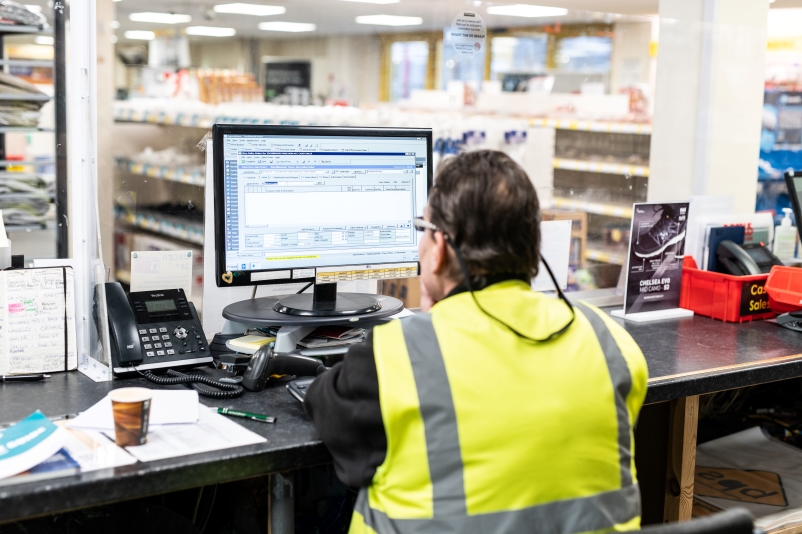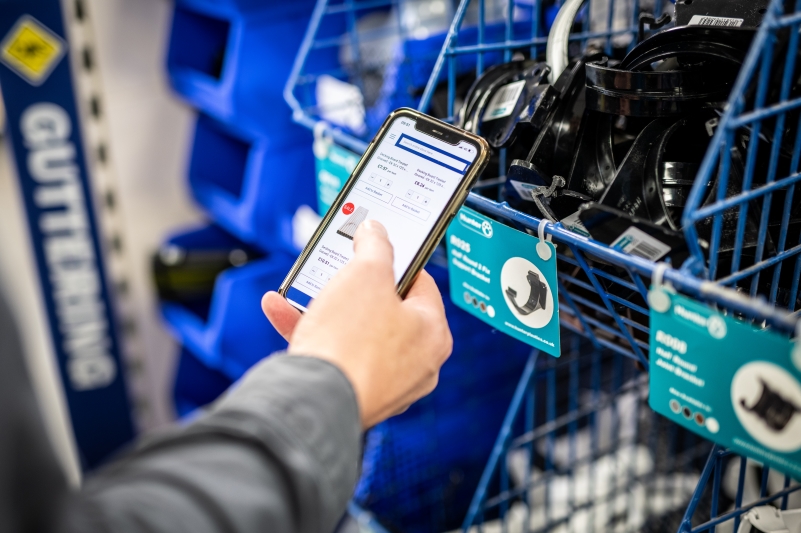
Chris Fisher, VP of EMEA, LBMH Division at ECI Software Solutions explains how implementing digital tools can allow builders’ merchants to respond to the challenges that lie ahead.
Anyone working in the construction sector will be well aware that the industry is prone to fluctuations. In December, the UK construction industry saw its fastest month on month fall in activity since May 2020 (S&P Global / CIPS UK Construction PMI). In part this could be due to the looming recession causing many to scale back spending, however price inflation of raw materials, supply chain disruption and the ongoing recovery from the pandemic are undoubtedly compounding the issue.
It’s not all bad news though — and the construction industry has weathered many recessions, so builders’ merchants should cast their eyes forward when deciding how to conquer the current challenges and come out the other side stronger.
Streamlined processes
When business is booming, legacy technology or manual processes are rarely questioned by business owners. But as we know, when a business starts to encounter challenges and needs to be able to adapt or cut back on resources, the systems and technology in place can suddenly seem like a hindrance rather than a help.
Work can quickly pile-up, leaving smaller teams snowed under and unable to provide good quality customer service. Similarly, obtaining a clear and accurate picture of the business, current performance and any issues is impossible without reliable data.
Specialist ERP systems, commonly referred to as business management software, have been designed to enable businesses to achieve all of the above, removing the administrative burden created by manual and repetitive processes and fuelling growth.
ERP systems can be integrated across the whole business, connecting different departments and automatically updating important information around stock management, inventory, customer records and accounting.
“When the pressure is on to boost turnover and identify new opportunities, automation of day-to-day tasks can give teams the much-needed capacity to thrive.”
Securing sales
While streamlining internal processes can generate significant efficiency savings, being able to adapt in line with changing customer preferences is also essential — with eCommerce being a top priority for a growing number of builders’ merchants.
Traditionally, many would have built their relationships with customers over the counter. Tradespeople would be dropping in on a regular basis and staff would soon start to understand the products they tended to buy, potentially offering special offers or discounts.
More recently, eCommerce has changed this. Many prefer the convenience and immediacy of online shopping, over having to travel to a merchant yard yet by implementing an online offering, some start to feel like they are losing this connection with customers — but that is not the case.
A specialist eCommerce solution, such as ECI eCommonSense, can enhance the level of service a merchant business offers. Features such as being able to automatically build and store quotes, as well as reliable delivery scheduling service can ensure customers benefit from a five-star customer service, both in-store and online.
Integrated technology
Because online transactions happen faster and aren’t visible to the whole team, there’s a greater need for all systems to be integrated to prevent costly errors or oversights.
Although many merchants will have a basic website to explain information such as their address, opening hours and potentially what they specialise in, not all have what’s described as an ‘enhanced website’ — one that can communicate directly with their business management system.
 Implementing both of these solutions can enable performance to significantly increase. Understandably, many are reluctant to make large investments given the current economic climate. However, by not doing so there’s a risk that customers will favour those able to offer a more efficient and reliable service.
Implementing both of these solutions can enable performance to significantly increase. Understandably, many are reluctant to make large investments given the current economic climate. However, by not doing so there’s a risk that customers will favour those able to offer a more efficient and reliable service.
Similarly, while there’s the initial expenses associated with implementation, software is automatically and continuously updated. This means that as customer demand and the industry landscape changes, a business won’t need to worry about replacing their system — it will all be handled by the provider.
While no one is clear how long or how difficult the recession may be, investing in technology can help builders’ merchants to build resilience, enabling them to better manage the challenges that lay ahead.
Click the link to learn more about the tools available to builder’s merchants from ECI.
A version of this article appeared in the March edition of Professional Builders Merchant. Click here to see the full digital issue via the PBM website.









